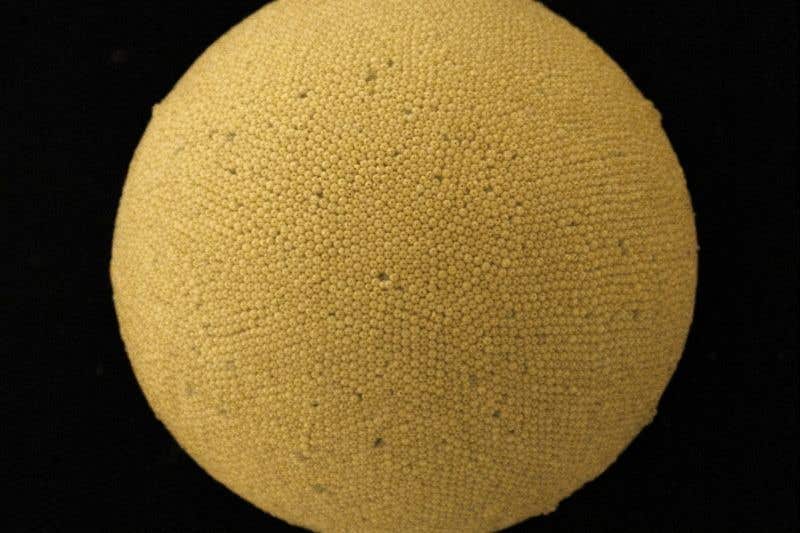Scientists connect sleep habits to mortality rate, study finds
The study, based on data from nearly 23,000 twins, suggests that while evening types may have a slightly increased risk of mortality.

Every year, countless families are devastated by alcohol addiction, with the tendrils of this affliction wrapping around millions of lives. (CREDIT: Creative Commons)
According to recent research published in the peer-reviewed journal Chronobiology International, staying up late at night may not significantly impact the lifespan of individuals categorized as 'night owls'.
The study, based on data from nearly 23,000 twins, suggests that while evening types may have a slightly increased risk of mortality compared to morning types, this difference is predominantly attributed to lifestyle factors such as smoking and drinking.
Lead author Dr. Christer Hublin, from the Finnish Institute of Occupational Health in Helsinki, emphasizes, "Our findings suggest that there is little or no independent contribution of chronotype to mortality."


Survival curves for men and women in the Finnish Twin Cohort from 1981 to 2018 by chronotype (purple line is morning type, blue line somewhat morning type, green line is somewhat evening type and orange line is evening type). (CREDIT: medRxiV)
The research, conducted over more than 37 years in Finland, underscores the importance of considering lifestyle factors when assessing the health implications of chronotype - the body's natural inclination to sleep at a certain time.
"In addition," Dr. Hublin adds, "the increased risk of mortality associated with being a clearly 'evening' person appears to be mainly accounted for by a larger consumption of tobacco and alcohol, compared to those who are clearly 'morning' persons."
Previous studies have indicated that sleep duration, quality, and night shift work can affect health outcomes, with night owls often associated with a higher risk of various diseases, particularly heart problems.
Related Stories:
A study from the UK Biobank in 2018, examining individuals over 6.5 years, found that evening types have a slightly elevated risk of death from various causes, including heart conditions.
Inspired by this previous research, the authors of the current study aimed to delve deeper into factors such as alcohol consumption and smoking habits, rather than solely focusing on chronotype.
Co-led by Dr. Jaakko Kaprio from the Finnish Twin Cohort study at the University of Helsinki, the research followed 22,976 men and women aged 24 years from 1981 to 2018.
Participants were initially asked to identify their chronotype from four possible responses: 'I am clearly a morning person', 'I am to some extent a morning person', 'I am clearly an evening person', and 'I am to some extent an evening person'.
Subsequent follow-ups in 2018 tracked mortality rates among the participants using data obtained from nationwide registers. The analysis considered various factors including education, daily alcohol consumption, smoking status and quantity, BMI, and sleep duration.
Results revealed that 7,591 participants identified as 'to some extent' evening types, while 2,262 were classified as 'definite' evening types. In contrast, 6,354 participants were 'to some extent' morning types, and 6,769 were 'definite' morning types.
Night owls, particularly definite evening types, tended to be younger and reported higher levels of alcohol and tobacco consumption. They were also less likely to report getting eight hours of sleep.
Of the total participants, 8,728 had died by 2018, with definite night owls showing a 9% higher chance of mortality from any cause compared to early birds. However, the study highlighted that smoking and alcohol consumption significantly contributed to these deaths rather than chronotype.
This observation was further supported by the fact that non-smokers showed no increased risk of mortality.
Causes of death associated with alcohol included related diseases as well as accidental alcohol poisoning.
Dr. Kaprio underscores the broader societal implications of their findings, noting that their participants' health status was comparable to the general population, unlike the healthier-than-average participants in the UK Biobank study.
The researchers highlight the comprehensive data on lifestyle factors as a strength of their research, though they acknowledge limitations such as reliance on self-reported data from a single question.
Note: Materials provided above by The Brighter Side of News. Content may be edited for style and length.
Like these kind of feel good stories? Get the Brighter Side of News' newsletter.



